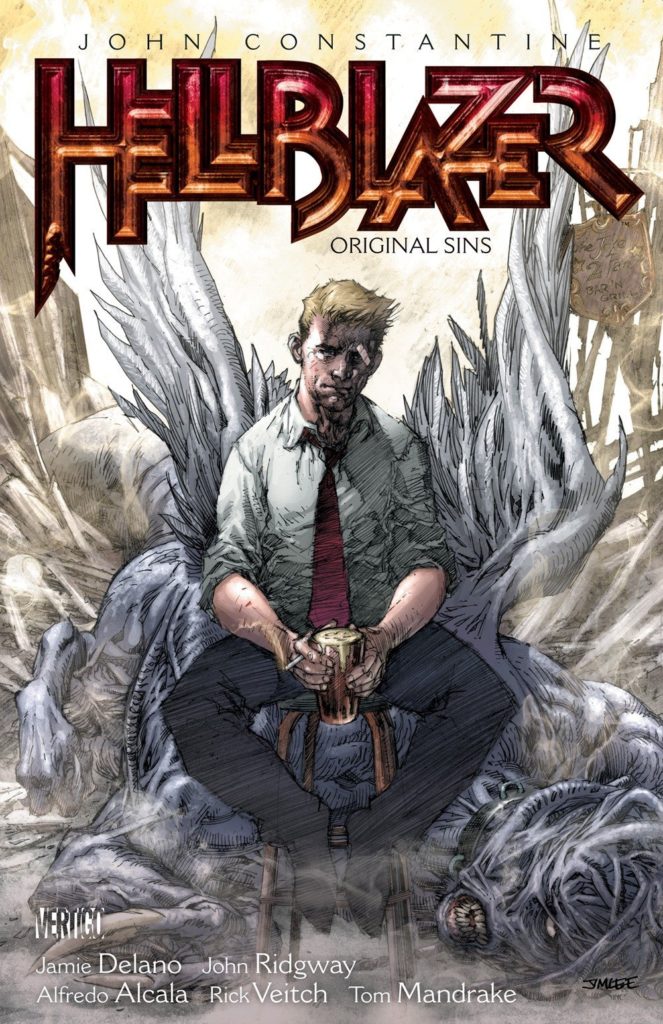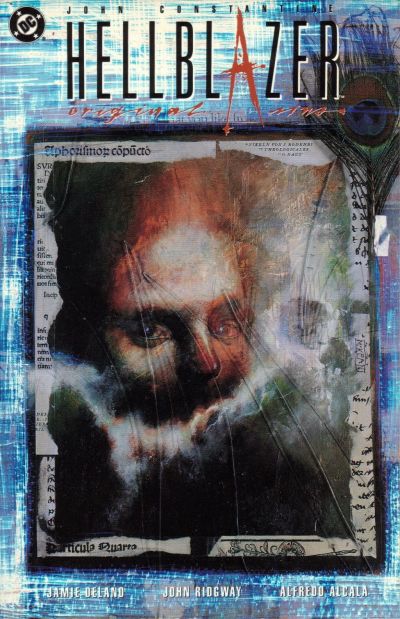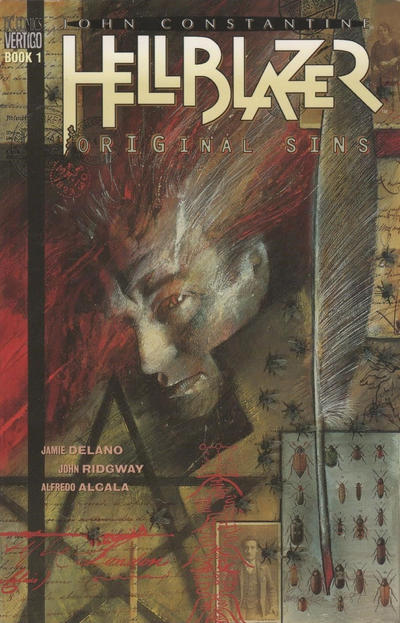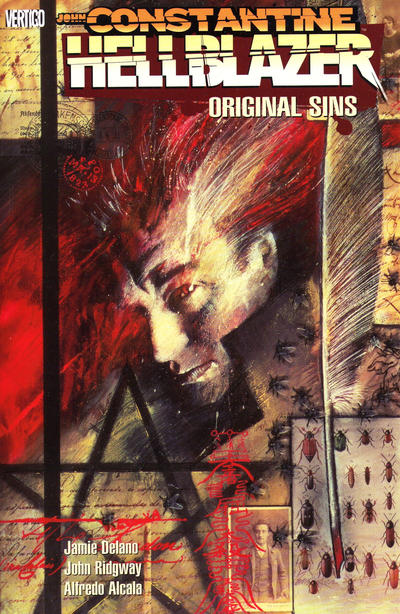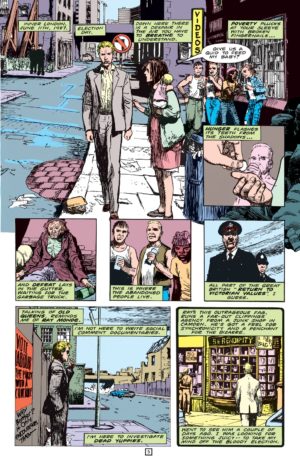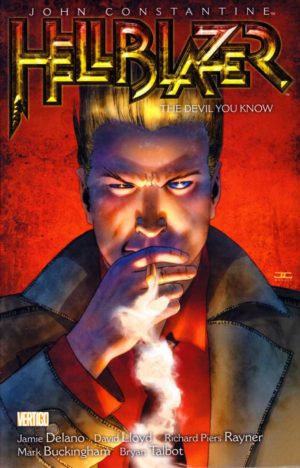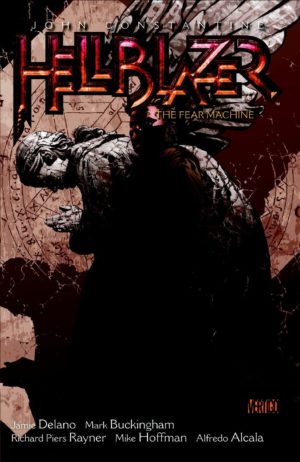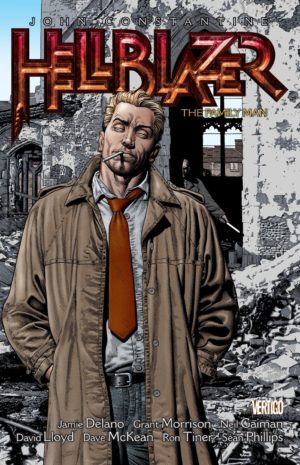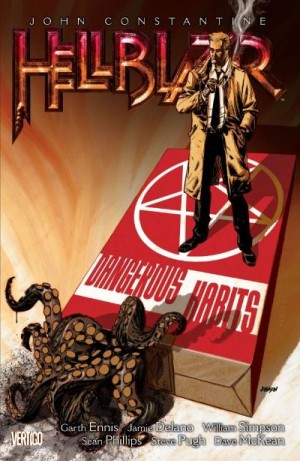Review by Karl Verhoven
The work of other creators defining John Constantine may now come to mind before that of Jamie Delano, but Delano’s fleshing out and cementing of his personality was instrumental to all later incarnations. A testament is the Original Sins collection of his earliest material being continually in print since 1992.
Delano’s first caption for Constantine reads “the traffic is barely moving and the back of the taxi still smells of last night’s vomit”, which perfectly sums up his downbeat world. Delano had been handed Alan Moore’s creation of an unpleasantly sarcastic English practitioner of magic, worlds away from Doctor Strange, one who dabbled in the dangerously arcane and did the right thing while simultaneously alienating everyone he was helping. Delano ups the ante on that, with anyone associated with Constantine lucky to remain alive after one of his interventions, and bases him back in Britain, where his own seediness is reflected by the surroundings. Social problems inflicting poor areas are reinforced, while dry cynicism characterises Constantine’s narrative captions, along with Delano feeding him neat observations. At times the relentless negativity chafes, but Delano’s been proved right by the lack of improvement over thirty years, leaving Original Sins as social documentation. His satirical farce about the upper class preying on the weak provides the strongest story, everything he says elsewhere about Constantine and his environment confined to 24 concise pages set around the UK’s 1989 general election.
John Ridgway is spot on with urban squalor, but less at home with the assorted inventive cruelties and demon personalities infesting Constantine’s world. They’re on the tame side, and his refinement sometimes makes him a good artist on the wrong strip. He’s at his best on a story flashing back to the Vietnam war, which features lush scenery and some excellent portraits. Brett Ewins only contributes three pages.
Several characters who’d recur throughout Hellblazer’s various incarnations are introduced by Delano and Ridgway. Voodoo practitioner Papa Midnite would even make the movie, while Constantine’s mate Chas, the arch-survivor, and occultist Zed turned up in the Constantine TV show. His niece Gemma Masters appears, here more as victim, rather than her later confident incarnation, and the ghosts of tragedies past haunt Constantine. Demons and monsters feature, but Delano introduces them all as manifestations of real world conditions, drugs, AIDS, war trauma, greed, racism, and religious manipulation among them.
The most recent edition of Original Sins rectifies an error perpetuated down the years by including the Swamp Thing story continuing from the final Hellblazer chapter. It’s a fair departure from the remaining content, not exactly horror as Rick Veitch uses Constantine in a creatively unusual way. It’s Constantine, but not as we know him for most of the story. Alfredo Alcala’s inking looks more at home on Veitch’s pencils, and this is an infinitely brighter world than the drab London over the previous pages.
For a long while Original Sins stood alone as the only graphic novel collecting Delano’s Hellblazer, but in 2007 a programme was instituted to reprint all Hellblazer from the earliest days, and a taste of what awaits in The Devil You Know is provided by a chapter of Richard Piers Rayner’s art.
